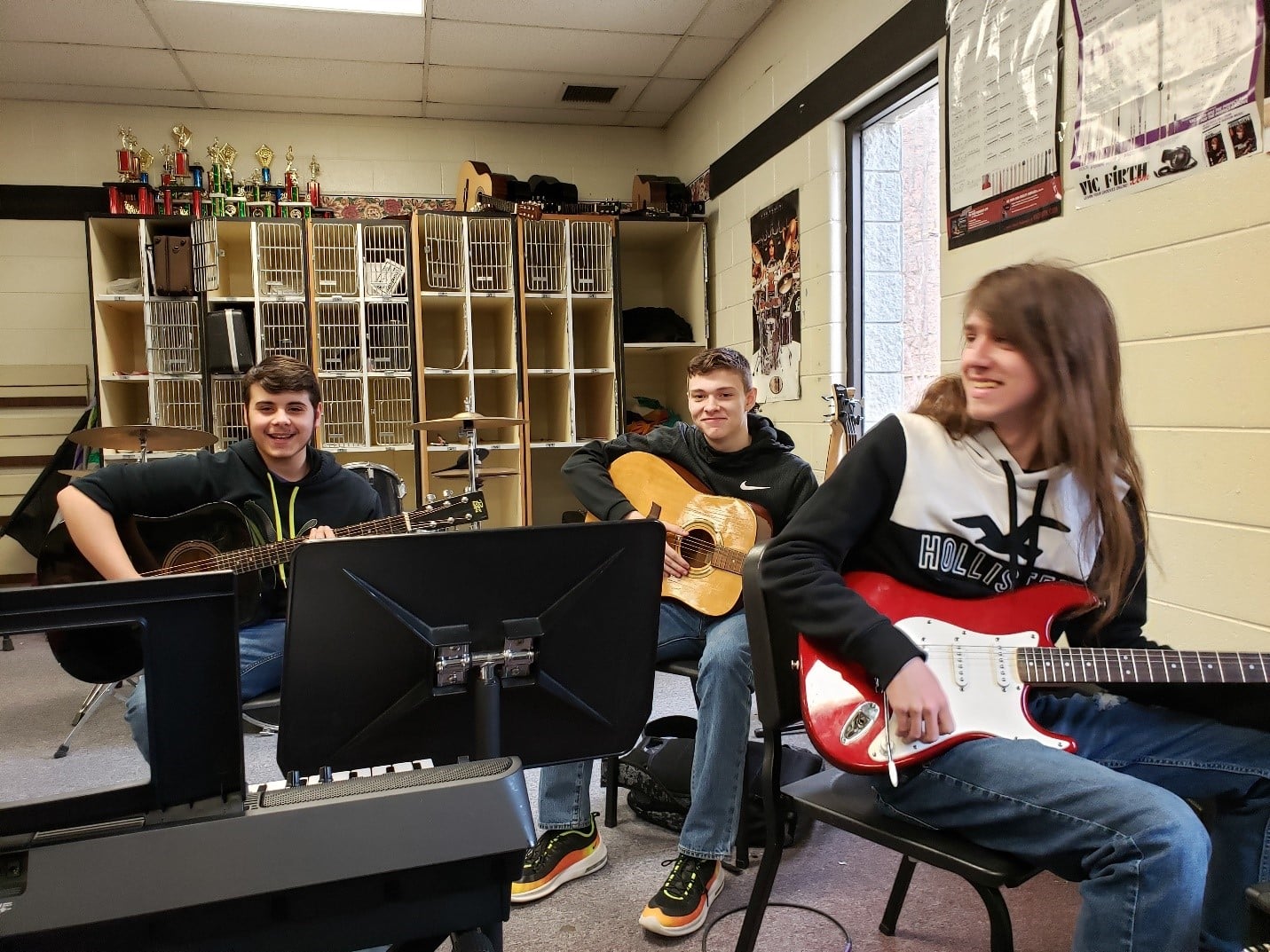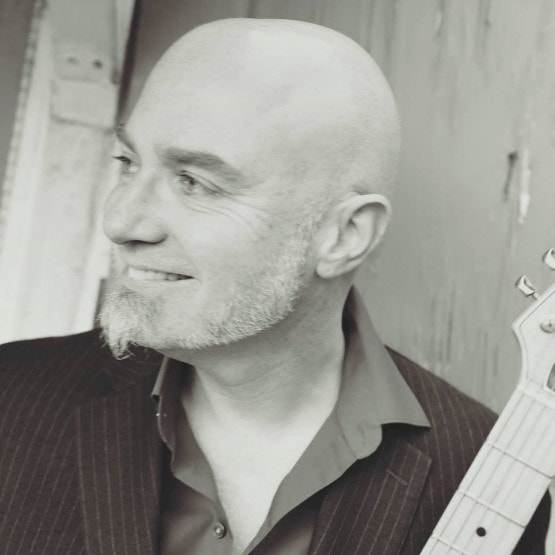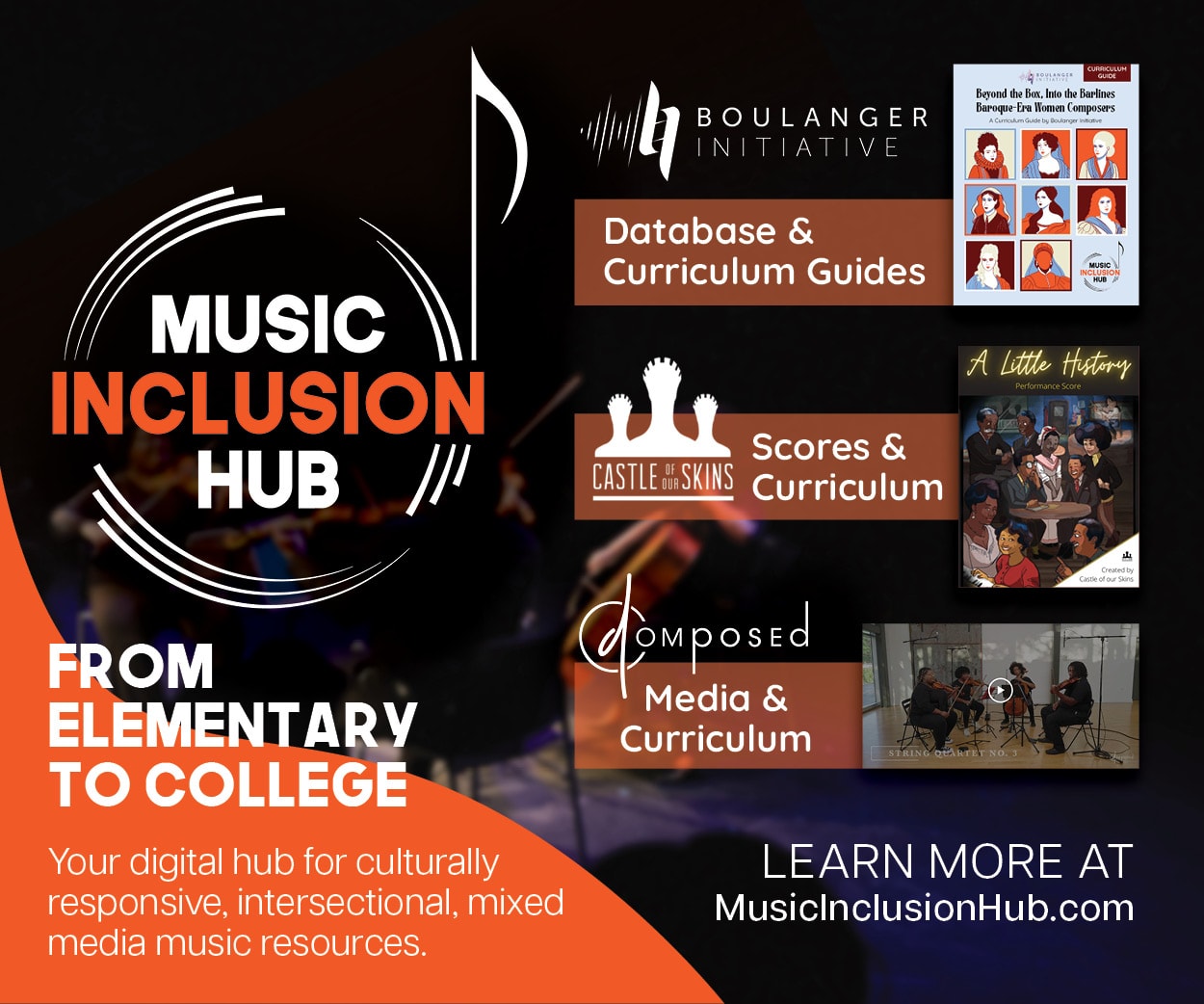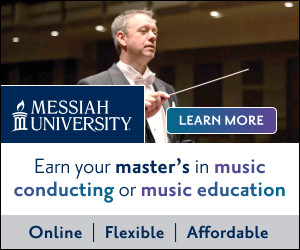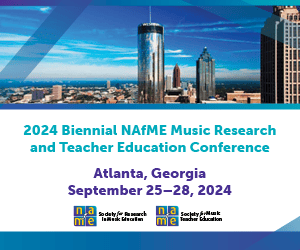/ News Posts / Guitar Class in the Mountain State
Guitar Class in the Mountain State
Number 48: The State of West Virginia
By Thomas Amoriello Jr.
NAfME Council for Guitar Education Immediate Past Chair
Images in this article were taken before the closure of schools due to the COVID-19 pandemic.
![]() Tug Valley High School is in rural Northern Mingo County, Williamson, West Virginia, and is fortunate to have music educator J. Alan Riffle on their faculty. He is a graduate of Virginia Commonwealth University and a member and former facilitator of the Mingo County Music Educators PLC. Riffle works with the other music teachers in the area to schedule and conduct the county honor band festival, Mingo County Arts Alive, and address county-wide music education concerns.
Tug Valley High School is in rural Northern Mingo County, Williamson, West Virginia, and is fortunate to have music educator J. Alan Riffle on their faculty. He is a graduate of Virginia Commonwealth University and a member and former facilitator of the Mingo County Music Educators PLC. Riffle works with the other music teachers in the area to schedule and conduct the county honor band festival, Mingo County Arts Alive, and address county-wide music education concerns.
Now in his third year at Tug Valley High School, Riffle conducts the school wind ensemble and coaches the school rock band in addition to the guitar classes he teaches. The NAfME Council for Guitar Education would like to thank Riffle for sharing his guitar experience with the NAfME membership
Please tell us about your school and overall music program.
Tug Valley High school has about 317 students enrolled and is located in Naugatuck, West Virginia. It is a very rural area with a high rate of poverty. The music program includes the band, which regularly performs, as well as piano and guitar classes. We regularly engage in chamber ensemble and solo work stemming from the band class and do devote class time to those pursuits.
Within the context of our county school system, Tug Valley is an active collaborator in county-wide music and fine arts initiatives which provide performance opportunities for our students. All of the teachers in our county are very close and collaborate very well. Our programs are very small, due to population: 16-25 is the average for our high school ensembles.
Please tell us about your own personal musical background growing up and your collegiate experience.
I started learning the saxophone in 6th grade band in Kanawha County, West Virginia. As I progressed, my middle school band director encouraged me to pick up the clarinet and flute as well, since he was a woodwind doubler himself; that started me down the woodwind doubling path. In addition, I picked up the trombone in high school. I went to college for music education at Virginia Commonwealth University, studying saxophone and clarinet under Albert Regni (New York Philharmonic), flute under Susan Davis, piano under Marta Puig, and composition under James Wiznerowicz. I was afforded amazing opportunities there, including performing at Carnegie Hall, in New York with the Wind Ensemble, performing at the Navy Band Saxophone Symposium with our saxophone quartet, and getting to study jazz and improvisation by playing in the jazz orchestras. In addition, I feel I was offered some opportunities that I may have not been able to duplicate at other universities. The faculty were all very close-knit and extremely open to helping anyone engage in outside-the-classroom, experiential projects. For example, I was able to have a few different pieces that I had written performed on concerts; one of them was even accepted as a jury piece.
What obstacles did you face when you were first hired at your school? Now?
The music program was very well-maintained from the previous teacher, who is a friend of mine. The obstacles that I faced and continue to face are mostly of a systemic nature. In order to justify having two music teachers, the other teacher and I have to teach a Career and Technical Education course called Careers in Education. While it is a fantastic course for those who wish to become teachers of any subject, it also entails a lot of paperwork, chauffeuring students around to student internships, etc. This takes time away from planning for music classes and arranging music for our haphazard instrumentation. The low population means that virtually every piece that we play has to be arranged or re-arranged by me in order to work for our student musicians.
What kind of classes related to the guitar do you teach?
We do incorporate bass guitar in the band (wind ensemble) class. Some of the band, guitar, and piano students are also drawn to AP(R) Music Theory, which I am in the second year of teaching.
What would you like to say to the non-guitarist music educator who is about to or interested in incorporating the guitar into their program?
I would encourage the educator to think about the goals of the students and what they realistically want to achieve. If they are mainly interested in rock or metal, for instance, and want to play in a band of that genre, the utility of being able to read written music is nearly non-existent. For those students, working by ear, being able to read tablature, and learning their chord shapes carry more importance than reading standard musical notation. If you are doing a guitar ensemble, on the other hand, it is very important—just like it is in band. It would also be important for anyone wanting to study classical guitar and continue studying it at the collegiate level.
In adopting a more student-centered approach, you may find that the class diverges significantly depending on the goals of the students, and you may not be able to teach everything whole-group, instead relying on self-directed study, collaboration, and small group work. Trying to overly standardize the wants and needs of everyone will only lead to headache and disinterest on the part of the students.
Do you have any success stories you would like to share about students (musical and non-musical)?
I have had a quite a few different students who, despite the challenges our area faces, have managed to make it quite far musically. They have represented us with distinction in at the All-State Band, various honor bands, and the WVMEA regional Solo and Ensemble festivals.
What do you tell your talented students who are planning to pursue music or guitar studies in high school or college after they finish with you?
I encourage them to audition and go for it. Since we have basically no private tutors down here (save the moonlighting that we public school music teachers do), I end up teaching the woodwind lessons for the county and preparing those people for auditions. I am up front about the challenges, and I always encourage them to do their undergraduate in music ed for financial security’s sake if music is to be their primary focus. That being said, I tell them that they have to focus on what they think will make them happiest and to envision what they want their future lives to look like to help them make the choice.
Do you have any networking or advocacy tools that have worked for you promoting your program that would help other educators?
Nothing groundbreaking. We generally use Facebook to inform when we have a performances, and parents are very good about sharing videos of our concerts and county events, which show everyone that our students do have access to high-quality music education in our county. The tireless efforts and teamwork of our music educators and the fact that our school administrations and county-level officials believe in music education make this possible.
What kind of future do you see for guitar in music education in West Virginia schools?
In the rural areas, in particular, guitar is a very popular instrument, and the class could be very popular if done properly. The class mustn’t be over-burdened by standardization and must play to not only the students’ desires, but also the strengths and weaknesses of a particular school’s music educator.
What type of lesson plans have you done for your classes that may be unique?
I’m not sure about particular lesson plans, but the way I approach the band program is somewhat unique. Because there aren’t very many people, the full group’s music has to be carefully arranged, and I really push for everyone to be involved in chamber music of some sort—be it solos with me accompanying on piano or chamber groups. Ergo, the band is viewed more as a collection of individuals, rather than the other way around. This has its own challenges, insofar as the fact that it takes a lot of time and energy to manage these different groups and projects, as well as the fact that others must remain very self-directed. However, I believe this really helps set musicianship-focused, achievable goals for the small band and avoids pigeon-holing the group into the traditional band model, which is very difficult for a small group to see satisfactory results with.
Do you participate in any musical performances or activities outside of your public school teaching duties?
I am a very active performer and musician myself, which has always been very important to me. I play full-time in two different professional groups: the Huntington-based Jewel City Jazz Orchestra, and a local group called The Jazzalachians. I also regularly play woodwinds for the Charleston Light Opera Guild and take solo piano engagements as I am able.
Past “Guitar Class in 50 States” articles:
- Number 47: The Hoosier State (Indiana)
- Number 46: The Mount Rushmore State (South Dakota)
- Number 45: The Pine Tree State (Maine)
- Number 44: The Badger State (Wisconsin)
- Number 43: The Constitution State (Connecticut)
- Number 42: The Evergreen State (Washington)
- Number 41: The Pelican State (Louisiana)
- Number 40: The Beaver State (Oregon)
- Number 39: The Equality State (Wyoming)
- Number 38: The Empire State (New York)
- Number 37: The Old Line State (Maryland)
- Number 36: The Centennial State (Colorado)
- Number 35: The Bay State (Massachusetts)
- Number 34: The Sooner State (Oklahoma)
- Number 33: The Prairie State (Illinois)
- Number 32: The Hawkeye State (Iowa)
- Number 31: The Volunteer State (Tennessee)
- Number 30: The Palmetto State (South Carolina)
- Number 29: The Natural State (Arkansas)
- Number 28: The Tar Heel State (North Carolina)
- Number 27: The Magnolia State (Mississippi)
- Number 26: The Peace Garden State (North Dakota)
- Number 25: The Treasure State (Montana)
- Number 24: The First State (Delaware)
- Number 23: The Buckeye State (Ohio)
- Number 22: The Yellowhammer State (Alabama)
- Number 21: The Sunflower State (Kansas)
- Number 20: The Great Lakes State (Michigan)
- Number 19: The Lone Star State (Texas)
- Number 18: The Bluegrass State (Kentucky)
- Number 17: The Golden State (California)
- Number 16: The Show-Me State (Missouri)
- Number 15: The Keystone State (Pennsylvania)
- Number 14: The Last Frontier State (Alaska)
- Number 13: The Beehive State (Utah)
- Number 12: The Peach State (Georgia)
- Number 11: The Cornhusker State (Nebraska)
- Number 10: The Gem State (Idaho)
- Number 9: The Old Dominion (Virginia)
- Number 8: The Aloha State (Hawaii)
- Number 7: The Land of Enchantment (New Mexico)
- Number 6: The Sunshine State (Florida)
- Number 5: The Grand Canyon State (Arizona)
- Number 4: The Ocean State (Rhode Island)
- Number 3: The North Star State (Minnesota)
- Number 2: The Silver State (Nevada)
- Number 1: The Garden State (New Jersey)
About the author:
Thomas Amoriello Jr. is the Immediate Past Chair of the NAfME Council for Guitar Education and is also the former Chairperson for the New Jersey Music Education Association. Tom has taught guitar classes for the Flemington Raritan School District in Flemington, New Jersey, since 2005 and was also an adjunct guitar instructor at Cumberland County College, New Jersey, for five years. He has earned a Master of Music Degree in Classical Guitar Performance from Shenandoah Conservatory and a Bachelor of Arts in Music from Rowan University. He is the author of the children’s picture books A Journey to Guitarland with Maestro Armadillo and Ukulele Sam Strums in the Sand, both available from Black Rose Writing. He recently made a heavy metal recording with a stellar roster of musicians including former members of Black Sabbath, Whitesnake, Ozzy Osbourne, Yngwie J. Malmsteen’s Rising Force, and Dio that was released on H42 Records of Hamburg, Germany. The record released on 12-inch vinyl and digital platforms has received favorable reviews in many European rock magazines and appeared on the 2018 Top 15 Metal Albums list by Los Angeles KNAC Radio (Contributor Dr. Metal). Visit thomasamoriello.com for more information.
Did this blog spur new ideas for your music program? Share them on Amplify! Interested in reprinting this article? Please review the reprint guidelines.
The National Association for Music Education (NAfME) provides a number of forums for the sharing of information and opinion, including blogs and postings on our website, articles and columns in our magazines and journals, and postings to our Amplify member portal. Unless specifically noted, the views expressed in these media do not necessarily represent the policy or views of the Association, its officers, or its employees.
Catherina Hurlburt, Marketing Communications Manager. May 28, 2020. © National Association for Music Education (NAfME.org)
Published Date
May 29, 2020
Category
- Uncategorized
Copyright
May 29, 2020. © National Association for Music Education (NAfME.org)
